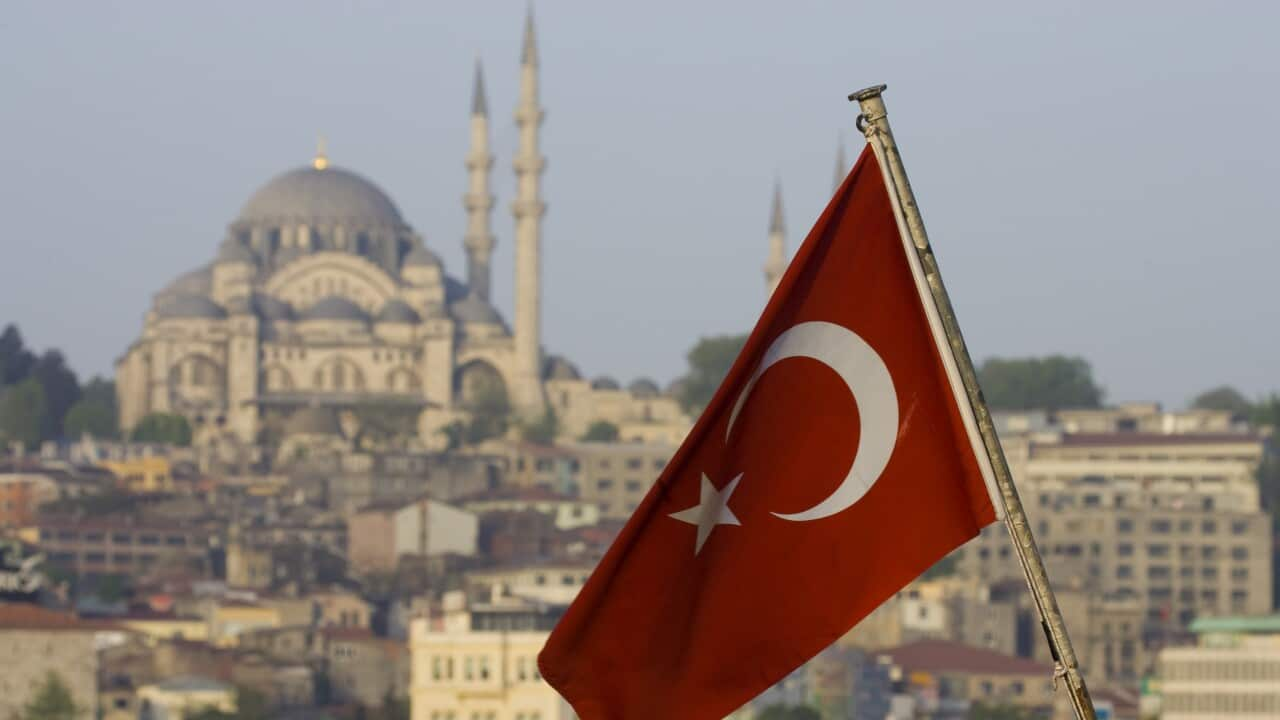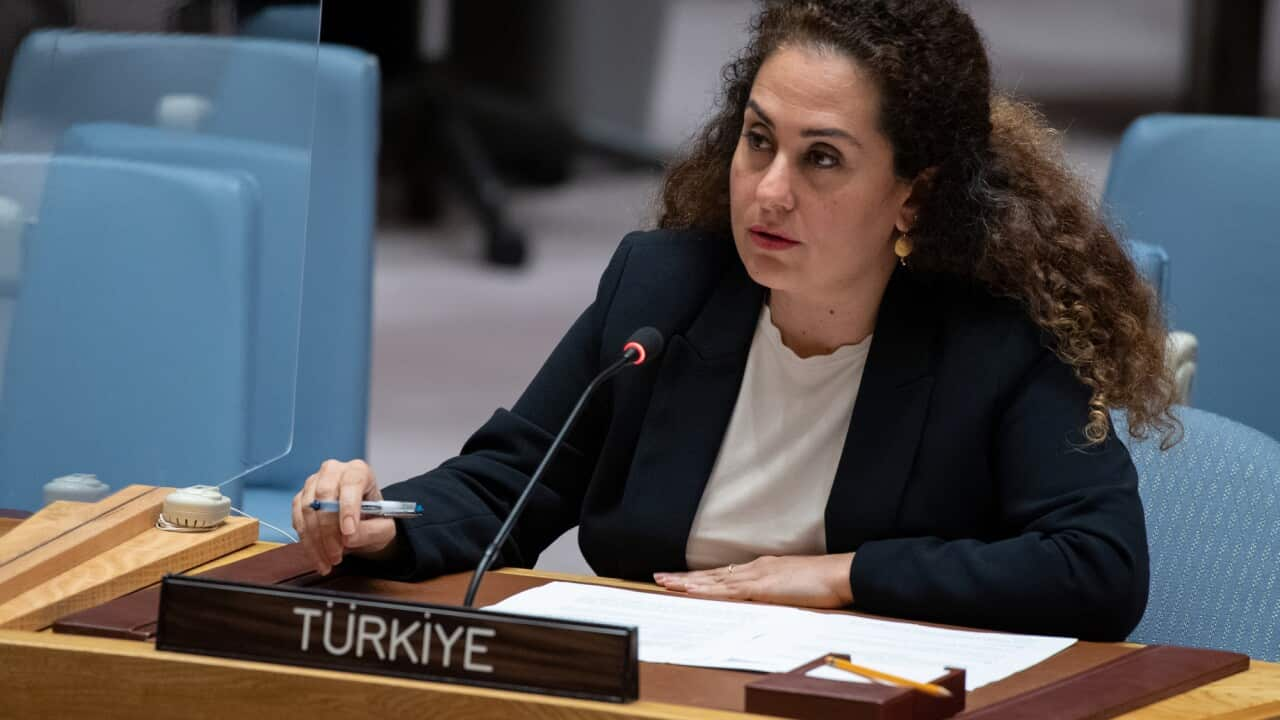Key Points
- Turkey has been spelled and pronounced Türkiye (Tur-kee-yeah) in Turkish since the country became a republic in 1923.
- The country began a push for the rest of the world to adopt the same spelling and pronunciation in 2021.
- Last year, the country became known as Türkiye to the United Nations.
The shocking scale of loss and devastation following a 7.8-magnitude earthquake on Monday has placed the country of Turkey in global and Australian news headlines.
While coverage has centred on thousands of people killed in both Turkey and Syria, an alternative pronunciation and spelling of the country’s name may have had some Australians doing a double take.
An official letter submitted last June by Turkish Foreign Minister Mevlüt Cavuşoğlu and addressed to United Nations Secretary-General António Guterres requested the use of Türkiye instead of Turkey for all affairs.
While English speakers have historically referred to the country as Turkey, it has been spelled and pronounced Türkiye (Tur-kee-yeah) in Turkish since the establishment of the modern Turkish republic in 1923.
The country began a push for the wider world to adopt the same spelling and pronunciation in 2021.
Foreign Minister Cavuşoğlu said in a tweet that the move would "increase our country's brand value".
The country’s English language public broadcaster , the move would help to disassociate the country’s image from the large bird of the same name.
"Flip through the Cambridge Dictionary and Turkey is defined as something that fails badly or a stupid or silly person.
"That association, while not flattering, has its roots in a mix-up that goes back centuries."
Turkey isn't alone
Turkey is not the first country to request the rest of the world to change the use of its name.
Persian rugs and Persian love cakes may remain, but the country for which they were named is now known as Iran.
In 1935, the Shah of Persia asked foreign governments to cease using the word Persia and switch to Iran, however the language largely spoken in the country is known as Persian.

While the country name of Sri Lanka was adopted in 1976, some people still referred to it as 'Ceylon' for years after. Source: Getty / Paul Biris
The name change occurred when it became a republic and removed the United Kingdom's head of monarch Queen Elizabeth II as its head of state.
Sri Lanka has been referred to by many different names, but Ceylon, a version of a Portuguese word Ceilao, was officially adopted by the British during colonial rule from 1815-1948.
In 2010, Sri Lanka's government announced it would drop Ceylon from the names of government institutions - but the policy has yet to be implemented. Some businesses in the country's tea export industry still use the name for brand recognition, associating the name with the distinctive flavour of tea produced on the island.
Sri Lanka means "resplendent island" in the Sinhala language. The country was named 'Lanka' before the colonial era began. The honorific part of 'Sri' was added to produce the new name for the country from 1972.
Similar to Turkey, Russia's invasion of Ukraine in early 2022 thrust the latter country's name into news headlines. " could be read as a suggestion the country does not have political sovereignty, which it does.

In Turkey itself, the country is referred to as Türkiye. Source: Getty / Manuel Augusto Moreno
There's actually a name for it
University of Western Australia linguistics lecturer Amanda Hamilton-Hollaway said there are reasons for why different names develop for countries - both within and outside the nation.
For example, Spain and España refer to the same country. The first term is known as are as endonym and the latter as an exonym.
Ms Hamilton-Hollaway explains the distinction.
"An endonym is the name that people give to their place where they live, and an exonym is the name that people give to a place where they don't live, or a different place, that place over there."
She said what created endonyms and exonyms were differences in the languages and sound systems of those languages.
In the case of Türkiye, it uses a type of vowel that is not written in English, the ü and España or Spain has the 'ñ'.
"It's a common human phenomenon to talk about places where you don't live and you might not always know or perhaps not always even care what the people who live in that place call it, you have your own word for that place over there," Ms Hamilton-Hollaway said.
"Take Hungary, for instance, that is the English word for that country, which probably comes from a Latin word meaning land at the Huns; and then in Hungarian itself, the place is called 'Magyarország' so the country of the Magyars, so I guess that probably reflects a bit of history from the Roman Empire."

University of Western Australia linguistics lecturer, Amanda Hamilton-Hollaway explains that exonyms and endonyms exist within different languages to refer to places from different people's perspectives. Source: Supplied
"London, in French and Spanish is 'Londres' so other languages certainly do adapt word place names to their own languages," she said.
"You even get it in some Australian Indigenous languages, they have words in one language that mean, that place over there, or those people over there and it's a different word from what those people themselves might call that place."
Ms Hamilton-Hollaway said foreign countries using other countries' endonyms in recent times appeared to be about showing respect and sensitivity.
"Anecdotally I do feel there is a lot more awareness of trying to be sensitive to what the residents of a place call themselves or call their homeland," she said.
"You see the same phenomenon also in people pronouncing other people's names, the way those people say their own name, rather than pronouncing it in their own accent. And I think it does go along with a greater trend that we are seeing throughout our society of just trying to be aware of people's differences and be sensitive to those."












